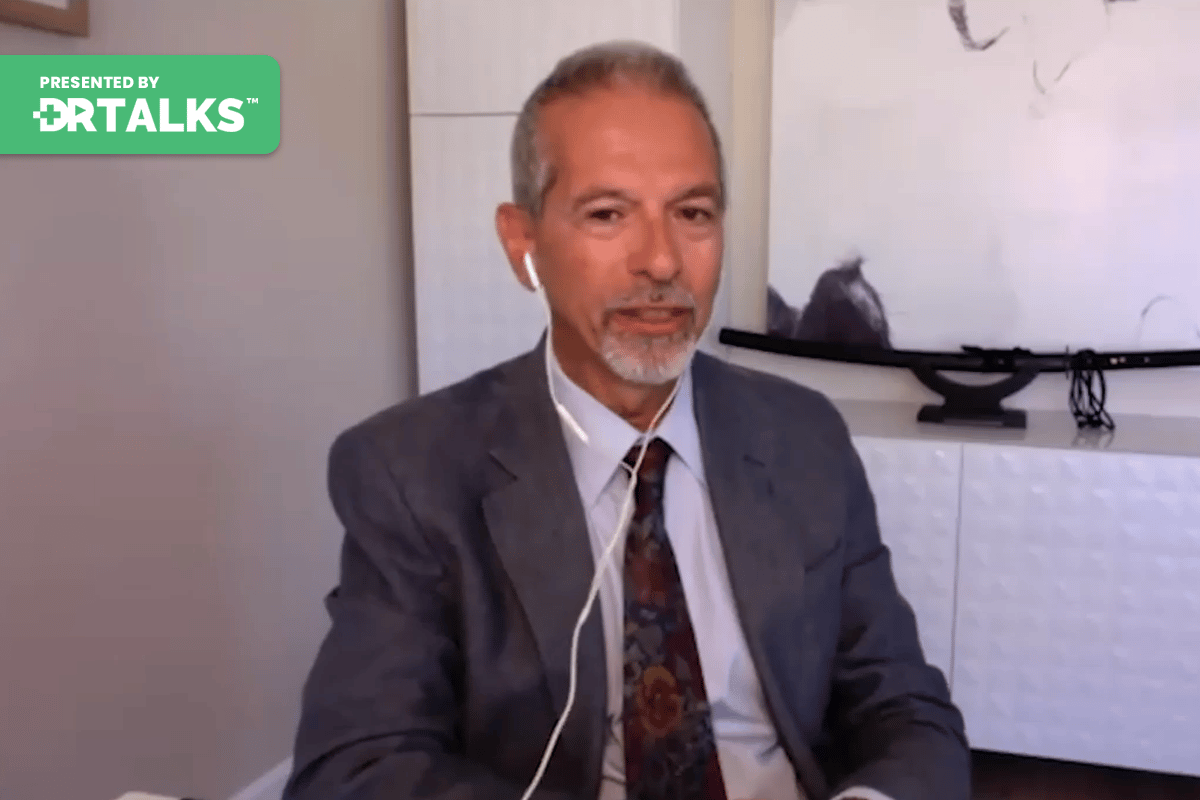But of course again, just because we have a gene does not mean we have a disease. So other things that are related to these particular situations really come down to, for example how we detox certain things, for example we can have a genetic predisposition where we don’t detox mold toxins or toxins from other infections for example. And when we don’t detox these toxins they can build up in our body, they can build up in our brain, they can cause ourselves to actually die. They can cause a lot of problems that can actually be contributing to mental health issues. So other things from a toxicity perspective and genetic expression really comes down to how we properly detoxify in our body. So a lot of people don’t fully understand the full detoxification process. So a lot of people talk about Phase One and Phase two of our liver. And so what happens in Phase one and Phase two of our liver is Phase one and Phase two of our liver. The idea with Phase one and Phase two really is to break down toxins. So they are more easily able for the body to excrete them and so we break them down, we make them more excretable in things like our urine and our stool. So that’s Phase one and Phase two of the liver. But what a lot of people don’t realize is that in order for these toxins that are broken down in the liver in order for them to actually leave our body.
We have to have the liver transport them out of the liver. Okay, so they actually have to leave the liver in order to leave the liver, we have to have transport proteins working. So these transport proteins and things known as the MRP two or the B. S. C. P. And the M. R. P. Two and the B. S. C. P.’S Their job as transport proteins is really to take those broken down toxins from the liver and to get them out. If these transport proteins aren’t working, then what winds up happening is the broken down toxins, they don’t leave the liver, they actually go back into our blood. They can wind up the depositing all around our body that can cause a little lot of inflammation that can cause a lot of neuro inflammation. They can get into our brain and cause all sorts of problems. Well, this is tied to genetics and to the genetic expression because we can have genetic tendencies for any of these places to break, we can have a genetic tendency for Phase one in our Phase two to not work as well. We can have a genetic tendency for the proteins that transport things out of the liver to not work as well. So we can have breakdowns in our detoxification pathways due to our genetic predispositions.
So, all of these things that I’m talking about through things like Pyroluria to problems with our body being able to recognize and detox things from like mold toxins or Lyme toxins. All of these types of things can be genetically expressed or not expressed. And this is one one of the reasons, right why? Sometimes with disease, sometimes with mental health, sometimes there’s a key sensitizing event. So sometimes there’s a childhood trauma or an adult trauma or something to kick some of these things on. But sometimes it feels like, wow, just like some of these types of mental health issues can almost just turn on. And sometimes when that happens that can be a queue of a genetic expression of something that you had a genetic tendency for that, that gene not expressed. And then all of a sudden it was. So how does this tie into microbes? Let’s talk about that because this ties into microbes in part because of what the conversation on what is going to cause a gene to express.
Right? So if we have a disease promoting gene and it is in dormancy and then all of a sudden it turns on, we need to have a discussion about what the heck is going to make that gene turn on. So there’s lots of different things that can do this. One thing that can do this though is the the whole microbe family. So basically microbes of a lot of different types of microbes that are viruses, microbes that are fungus parasites, bacteria, all sorts of different, different microorganisms can actually cause epigenetic expression, viruses actually have been one of the things that I’ve seen the most data and the most research on but really microbes of any type can cause these types of reactions to occur. So this explains for example, when they like say we have pyro area, that discussion that that or that that that condition that I opened this discussion with say all of a sudden Pyroluria kicks on and the body starts making these pie rolls out of the blue. Well, it might be that we have a chronic virus that we have a chronic hidden infection of some sort. And that infection was what caused the gene that disease promoting gene to express in this example pyro area. And then all of a sudden we have a deficiency because of the pyros being created. We have a deficiency in that B six And when we have a deficiency in that B6, we can get mental health disorders from that.
So often times when we’re thinking and we’re having this discussion on genes, we want to have a further discussion on what is going to help genes turn on and off. We want the disease promoting genes to turn off the health promoting genes to turn on. So there’s still limited studies. Only limited studies on turning genes off that we want to have them turned off. So we do see that methyl donors can help with this. So methyl donors are molecules that are composed of a carbon and three hydrogen, it’s a molecule of a carbon and three hydrogen methyl donors are basically important because this ma molecule is going to make enzymes and make functions all over the body works. When we talk about methylation. It’s something that’s talked about quite a bit and you can hear the buzz word has been a buzzword for some years now. And basically what we’re talking about, we’re talking about processes that involve this molecule of one carbon and three hydrogen, which is allowing things all over the body to work. And so we have this molecule and we have these parts all over the body that are working because of this molecule.
One of the things that will happen is we can positively influence genetic expression. So making sure you have enough methyl donors is really, really important. Sam E is our most predominant methyl donor. Some people are using things like Medical Ballymun, which is the method for form of B 12 or metal Foley, which is the metal form of foley and method nobleman. Metal Foley do have a methyl group attached. They do have a carbon and three hydrogen but some molecules are able to donate a lot more methyl groups. Many more methyl groups than others. And method nobleman and meta foley do not have that many methyl groups groups to actually donate, meaning they’re not going to have as big of a positive effect on methylation in the body as something like a SAm E molecule. And Sammy has many, many, many more of these carbon hydrogen groups to donate to processes all over the body including enzymes including repair and including things like proper genetic expression of the genes we you know, we want to express or not express. So that’s something you want to consider. And we absolutely want to have a conversation about stress and about mindset here because a huge component of proper genetic expression and healthy genetic expression meaning the good genes are turned on, The bad genes are turned off. It really comes down to stress and stress is a huge promoter of things like genetic expression that are going to turn on these genes that I’m talking about that are related to all of these various components that we can relate back to mental health. So when it comes down to stress, there’s a really great talk on ted talks by a woman named Kelly McGonigal called Make stress your Friends.
That goes into a lot of the research on stress and really teaches us a lot about the fact that stress is not inherently bad, right? That it’s actually more of our relationship to stress, meaning if two people are put in the same stress test and one of the individuals is looking at that stress test is like, wow, this will be a challenge. But I’m going to grow or I’m going to learn this thing, it’s gonna be really cool. And the other person is going into the stress test and really saying, oh this is gonna be horrible. It’s the worst thing ever. Well the person that is going to be thinking, those negative nancy types of thoughts really is going to have a worse stress hormone output and that stress hormone output can cause worsening effects which also could be related to improper genetic expression and all the subsequent things we’re talking about here because this conversation is also about mental health. One of the things I want to talk about in this moment is that this is a really hard thing, right? So when we’re in a mental health situation, it’s really hard to get ahold of our brain and our thoughts and we are in this vicious cycle.
Often times where we can say, okay, we have a genetic and epigenetic expression and all of a sudden we’re not detoxing appropriately and these toxins are impacting our mental health and all of a sudden we are, you know, we’re hypervigilant and we’re in our brain and we’re thinking these thoughts and these thoughts are producing anxiety and depression and then all of a sudden our stress hormone goes up and then all of a sudden our genes express worse and then all of a sudden our mental health gets worse. And so there’s this vicious cycle. So how do we get out of it? So one of the things that I like to help people do is an exercise in brain retraining and in brain retraining. One of the things we do is we actually take some time to bring more awareness to what we are thinking. So one of my favorite people in the world. Dr joe dispenser uses the term nerves that fire together, wire together. And so often times we can be having thoughts that are related to our mental health issues, such as I’m never going to get well, I’m always going to be sick. These types of thoughts and when we have these types of thoughts, one of the problems can be, is that while they might be true, these thoughts oftentimes lead to more feelings of depression, anxiety, whatever it is. But how do we get out of this? Right?
How do we actually get ahold of these thoughts when they seem like they’re sometimes just spontaneously arising and sometimes they’re very true. Like you’re probably very if you’re watching this and you’re not feeling well, you’re probably very sick and not feeling well, like that’s probably a true statement and we want to be careful in doing this, that we don’t gaslight ourselves, that we don’t give ourselves a hard time or make ourselves wrong for having emotional responses to what’s going on in our body. And yet at the same time, we also want to be proactive to help get ourselves out of it. So that’s the concept of brain retraining and it starts with a really simple exercise. So it starts with just an observation exercise. So you set an alarm on your phone for every hour or every half hour and every time it goes off, you just write down your notes app on your phone, a journal, whatever is easiest for you, you just write down what you were think okay and the idea with this is not to judge it, not to make yourself wrong, this is not an evaluation is just to get data, you don’t reread it, none of that, you just collect this information and most people get enough information in a day.
Sometimes you might do this exercise for a couple of days. But the idea is once you have this information and then you want to turn back and you want to say you want to go and look at these things and the way that I find to work with some of these these mental health thoughts without gaslighting yourself is to then go back and say okay what else is true, what is true? But it’s still a version of the true but maybe something that’s not going to stimulate my stress, not so much because I got to get out of this vicious cycle. I gotta get my mental health. Well I gotta keep my genes, my disease promoting genes from expressing all of these types of things. So we want to go back and so if the belief of their thought is something like I’m never going to get out of this depression right or I’m so anxious, I can never go to a party, you know, we want to say, okay, well what is less stress provoking, what is less detrimental of a thought to think, but it’s also still like allowing our body to speak, it’s true, so you know, but the thought is like, I’m never going to get out of depression, may be a more health promoting thought could be something like I’m really proud of myself for working and putting effort into my health every day.
Okay, so also true, if that’s true, so we will want to be thinking about things like that instead, and you want to be thinking about that in relationship to okay, you know, you analyze, you did your data, you know what thoughts you’re thinking, how can you get out of this? And then once you have that healthier promoting thought, this is where that line that I really like from Dr. Joe Dispenza comes in, that I mentioned earlier, nerves that fire together, wire together because then what we can do is throughout the day also have alarms or reminders or sticky notes or cues that every time and we have the q come up, we want to practice thinking the other thought and we don’t want to just think it because it’s so easy to actually just think things you guys ever notice that sometimes we can be given a compliment, that sometimes this happens to me, like I’m giving a compliment is like, oh thanks and I just like move on with the next thing without actually receiving how that feels. So the same thing is true that we can do sometimes with this exercise, it’s so easy to just be like okay, the alarm went off, I’m supposed to say I’m really proud of myself for working on myself every day, that’s not going to have a big impact as if you almost receive it. Like you do a compliment when a compliment really gets into your heart and soul and you can actually receive that internal dialogue from yourself of saying like, wow, I’m really proud of myself for working on my health every day and really feel, feel what that feels like to be proud of yourself, allow yourself to take a quick moment to actually feel that and what we’re doing is we’re actually changing your nervous system, we’re chain changing the way your nerves actually respond to stress.
We’re changing the way your internal dialogue is to help you stop promoting cortisol and some of these stress hormones at such a high level. We talk in another talk of mind about how cortisol is actually good in the right amount, just we don’t want too much of it. But in working with the stress response in this way, we can help also with the epigenetic expression, we can help with some of the vicious cycles of the thinking and we can really help do this get your brain retrained so that we’re not triggering your stress response and to help protect us against some of these epigenetic expression of some of these disease promoting genes. But like I said, we also want to do it in a way, we’re not gaslighting ourselves and we’re allowing ourselves to feel because that creates its own problems and instead allowing ourselves to feel what we need to feel. It’s not to say that you can’t have a moment to be like, this is freaking hard, you know, have your moment. But we also want to have our other moments where we’re coming and we’re saying, okay, well I also yes, it is hard, but I also want to help myself get out of this situation and this brain retraining exercise I have found to be wonderful for this. So this is kind of your short lecture on brain retraining on epigenetic expression on how genetics and epigenetic expression of impact mental health. Again, I’m Dr. Diane Mueller, I’m the host of this summit. I think you’re gonna have a great day. I encourage you to watch as much of this as possible. You’re going to love all the speakers today. We have another wonderful day lined up for you guys. I’ll see you next time











